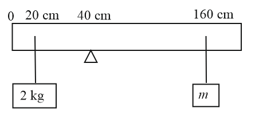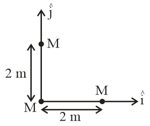Embibe Experts Solutions for Chapter: Motion of System of Particles and Rigid Body, Exercise 1: AIPMT - 3rd May 2015
Embibe Experts Physics Solutions for Exercise - Embibe Experts Solutions for Chapter: Motion of System of Particles and Rigid Body, Exercise 1: AIPMT - 3rd May 2015
Attempt the free practice questions on Chapter 5: Motion of System of Particles and Rigid Body, Exercise 1: AIPMT - 3rd May 2015 with hints and solutions to strengthen your understanding. EMBIBE CHAPTER WISE PREVIOUS YEAR PAPERS FOR PHYSICS solutions are prepared by Experienced Embibe Experts.
Questions from Embibe Experts Solutions for Chapter: Motion of System of Particles and Rigid Body, Exercise 1: AIPMT - 3rd May 2015 with Hints & Solutions
The ratio of the radius of gyration of a thin uniform disc about an axis passing through its centre and normal to its plane to the radius of gyration of the disc about its diameter is
The angular speed of a fly wheel moving with uniform angular acceleration changes from to in seconds. The angular acceleration in is:
Two objects of mass and respectively are connected to the two ends of a rigid rod of length with negligible mass. The distance of the center of mass of the system from the mass is:
From a circular ring of mass and radius an arc corresponding to a sector is removed. The moment of inertia of the remaining part of the ring about an axis passing through the centre of the ring and perpendicular to the plane of the ring is times . Then the value of is___
A uniform rod of length and mass is balanced on a wedge placed at mark. A mass of is suspended from the rod at and another unknown mass is suspended from the rod at mark as shown in the figure. Find the value of such that the rod is in equilibrium.

Three identical spheres, each of mass are placed at the corners of a right angle triangle with mutually perpendicular sides equal to (see figure). Taking the point of intersection of the two mutually perpendicular sides as the origin, find the position vector of centre of mass.

Find the torque about the origin when a force of acts on a particle whose position vector is .
Two particles of mass and respectively are attached to the two ends of a rigid rod of length with negligible mass. The centre of mass of the system from the particle is nearly at a distance of:
